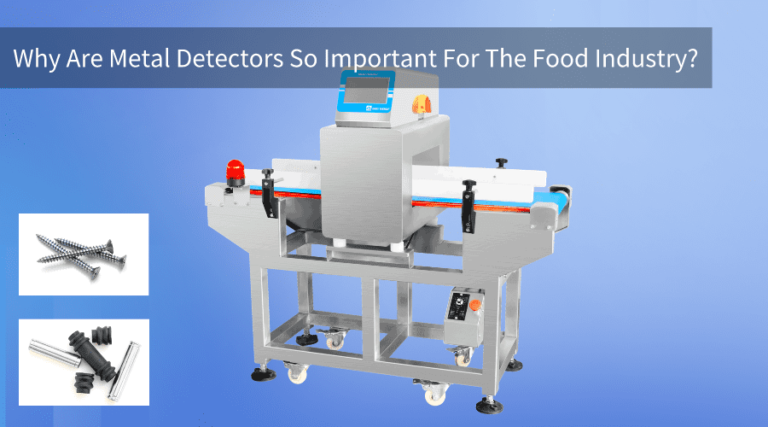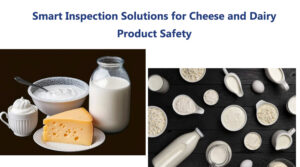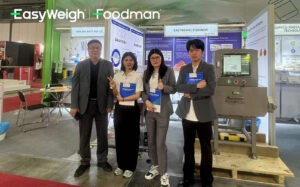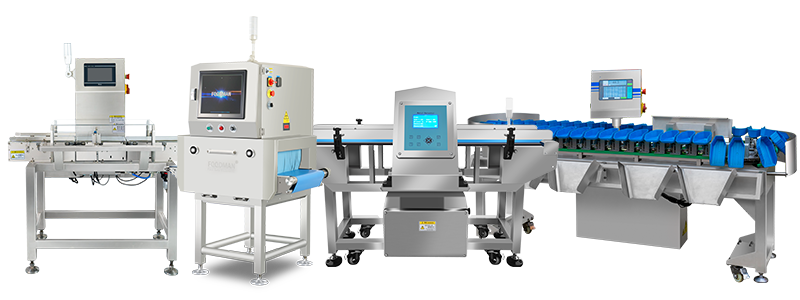Introduction
While there are diverse machinery and technologies for inspecting food products for contaminants to ensure safety, metal detectors are among the most common. This is because they are versatile and one of the most efficient devices for this purpose.
Food metal detectors help identify metal contaminants in food items, ensuring that products that reach the market are of the highest quality and safety standards. This article explores in detail the importance of this device to the food industry.
Identifying Diverse Contaminants
The main role of a metal detector in the food industry was to help identify contaminants and impurities in food items, particularly those made of metals. This device effectively performs this role, ensuring the identification of potential contaminants that may compromise food safety. While one may think there are diverse contaminants besides metals, that is true.
However, many possible sources of contamination may be prevented by adhering to standard operating procedures in the food industry. Metal contaminants may originate from wearing machinery, processing equipment, or even packaging materials. Therefore, avoiding them may be challenging even when ensuring proper practices are followed. Consequently, metal detectors are a valuable device to food manufacturers as they help rid these metals from foods that may pose severe health risks.
Below, we discuss metallic contaminants that metal detectors prove effective in screening out in food items.
Ferrous Metals And Non-Ferrous Metals
Most machinery and processing tools used in the food industry are made of ferrous metals (those containing iron like steel) and non-ferrous metals (like aluminum, brass, and copper). Therefore, it is not uncommon for food items to contain these metals as contaminants, posing health risks to consumers. Here’s where metal detectors come in handy. The device uses electromagnetism to detect the presence of these metals in these metals.
However, ferrous metals are more easily detected because of their magnetic properties. Some traditional metal detectors may struggle to detect non-ferrous metals because they lack magnetic properties. On the other hand, newer and advanced metal detectors for the food industry can detect them because of their conductive properties. They comprehensively screen the detecting material and screen out all sorts of metallic contaminants.
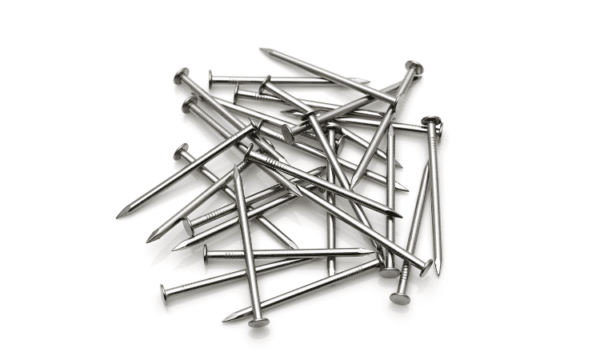
Stainless Steel And Other Alloys
Stainless steel is another common metal used in manufacturing food processing equipment and utensils because of its resistance to corrosion and overall durability. However, these alloys and other potential ones too may break down due to wear and tear and get into the food substance. Therefore, metal detectors are needed to screen out these metals to ensure safe food manufacturing for consumers.
Notably, metal detector operators may need to recalibrate the device, setting it to a frequency that allows it to detect stainless steel and other alloys. Otherwise, the food metal detector may not be able to detect these alloys, compromising the integrity and safety of the food products.
Ensuring Compliance with Food Safety Standards
Food can benefit one’s well-being or pose a health risk, particularly if contaminated. Therefore, the food industry has stringent regulations to ensure that food items that hit the market are top-quality and safe for consumption. That said, metal detectors are crucial in helping food manufacturers detect and prevent metal contamination in food products throughout the production process. Therefore, the device helps ensure compliance with food safety standards.
Navigating Regulatory Requirements
As we initially mentioned, the food industry is guided by several regulatory requirements designed by regulatory bodies to ensure the quality and safety of all food products. Therefore, metal detectors’ ability to screen for the presence of metal contaminants in food items makes them valuable tech for effectively navigating these requirements. Food manufacturers use this advanced tech to guarantee that their products are devoid of harmful metal contaminants. The food metal detector machine helps them adhere to these standards while safeguarding their customers.
International Standards And Certifications
Besides local regulatory requirements, food manufacturers must adhere to international standards, particularly companies that intend to export their products to other nations. Some of these international organizations include the Organization for Standardization (ISO) and the Food and Agriculture Organization (FAO). These bodies have established guidelines and certifications for food safety management systems, including metal detectors. Companies with the required certification indicate that they have adhered to the global safety requirements, which enhances their reputation in the international market as customers have an assurance that their food is safe for consumption.
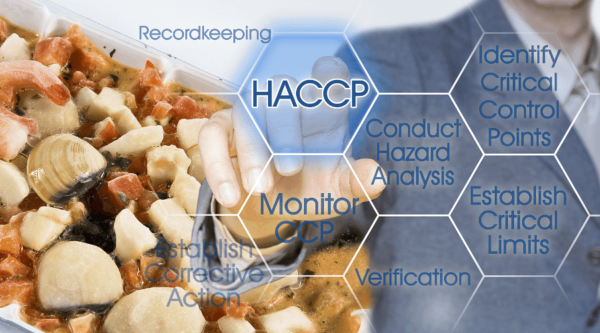
Harmonizing With HACCP Principles
HACCP – Hazard Analysis and Critical Control Points – is a management system that focuses on analyzing to identify, control, and prevent food contamination, promoting food safety. Metal detection systems are already integrated into HACCP plans as a critical measure to avoid metal contamination in food production. Metal detectors can inspect diverse food items, including liquid products, thanks to the innovation of waterproof metal detectors. Therefore, harmonizing metal detection technology with HACCP principles will help food manufacturers proactively minimize food hazard risks, enhancing food safety and quality.
Boosting Operational Efficiency And Production Continuity
The food industry is fast-paced, requiring quick product manufacturing to meet high market demands. Therefore, every aspect of the manufacturing and processing stage must be fast. Metal detectors for the food industry play a significant role in streamlining the food inspection process, ensuring that each product released to the market is devoid of metal contaminants.
Below are how the device helps to boost operational efficiency and improve production continuity.
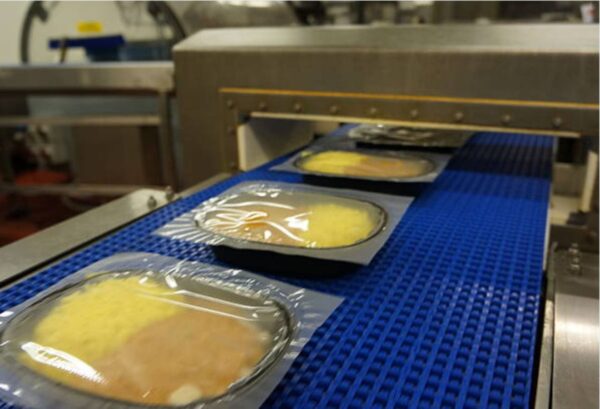
Minimizing Downtime With Efficient Metal Detection Systems
Metal detectors in the food industry are efficient inspection systems that help with easy and quick identification and removal of metal contaminants from the production line. Therefore, it eliminates the need to remove those products that have been screened out manually. Advanced metal detectors are equipped with an automatic rejection system with real-time monitoring that enables the device to intervene promptly, removing products with metal contamination. This feature significantly hastens the metal detection process, ridding the need for physical inspection and minimizing product recall in the future. Also, it helps these companies maintain uninterrupted production, meeting the demand of consumers and any potential close delivery deadline.
Conveyor Metal Detector
Enhancing Overall Manufacturing Processes
Beyond the primary function of detecting metal contaminants in food, modern metal detectors help improve the overall manufacturing process. These devices have automation and data management systems that help perform seamless operations and optimize workflows. By leveraging metal detectors’ functionalities, food manufacturers can achieve greater precision, consistency, and reliability in their manufacturing processes.
Maintaining Brand Reputation
The food industry is a highly competitive market. Therefore, it is paramount that all manufacturers adhere to all regulatory standards, providing their customers with safe and quality products to help maintain their reputation. Metal detectors are adequate in achieving this, as they help screen out products containing metal contaminants, thereby safeguarding the products released on the market. When customers believe in your products, it helps ensure the long-term success of the company.

The Impact Of Contamination Incidents
Incidents of contamination have detrimental effects on the reputation of a company. It builds negative publicity, encourages customers’ distrust, and results in eventual financial losses. For example, the company will need to recall such food products; if it’s excessive, they may even need to destroy such products, resulting in severe financial loss. Moreover, customers lose trust in the brand, resulting in less patronage and affecting the company’s profit.
Building Trust Through Stringent Safety Measures
Imbibing in stringent food safety measures is a straightforward way food manufacturers can help build trust with their customers. Since the food product is safe and high-quality, consumers will have no reason to doubt the company. Therefore, even though these machines are expensive, increasing the cost of food manufacturing helps build trust with customers while maintaining the industry’s stringent safety protocols.
Cost-Efficiency And Waste Reduction Minimizing Product
Another importance of metal detectors to the food industry is their contribution to cost-effectiveness and waste reduction. So how does it achieve this?
Minimizing Product Loss Through Precision
Metal detectors in the food industry are precise tech that enables accurate identification and screening of food products with metal contaminants. The device doesn’t give false alarms, so there’s little to no error in its detection. Therefore, since it accurately separates harmless products from contaminated ones, there’s little to no product loss due to potential false positive results. All these emphasize the efficiency and precision of the device in minimizing unnecessary product rejection.
Combi Metal Detector and Checkweigher
Tailoring Metal Detection For Various Packaging Methods
Food products come with different packaging, presenting unique challenges for metal detectors. Therefore, the device should be tailored to accommodate the other packaging without compromising its detecting accuracy and overall production efficiency. Operators should never forget to recalibrate the device to adaptable sensors that will enable them to detect metal contaminants in the different packaging. For example, the frequency of inspecting products with plastic packaging will differ from that of metallic cans or bottles. By tailoring the metal detection systems to the specific product packaging, its sensitivity is optimized for accurate metal contaminants detection, reducing waste and maximizing operational efficiency.
Conclusion
Throughout this article, we explored the importance of metal detectors to the food industry. The device performs diverse functions to improve the safety and quality of food items. While it may not be the best tech for inspecting food products, it is valuable to the industry, as metal contamination is widespread from its machinery. Therefore, having a metal detector will prove beneficial in achieving the industry’s safety and quality standards.

